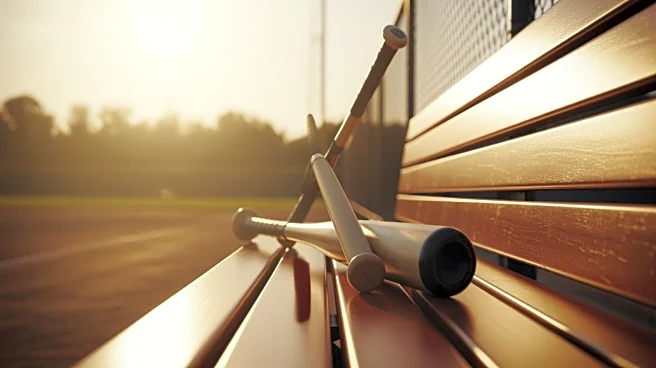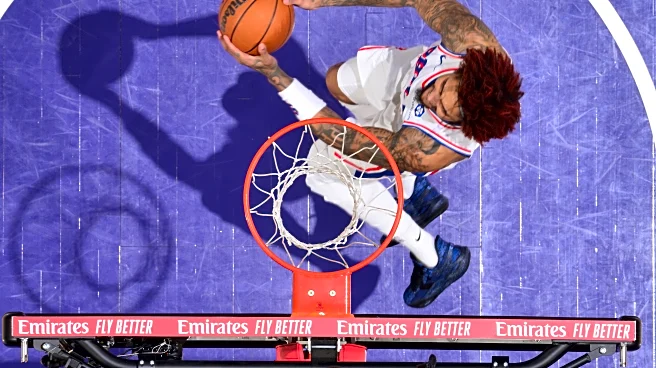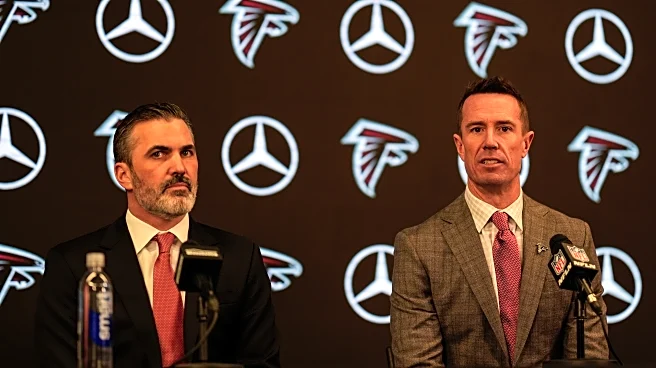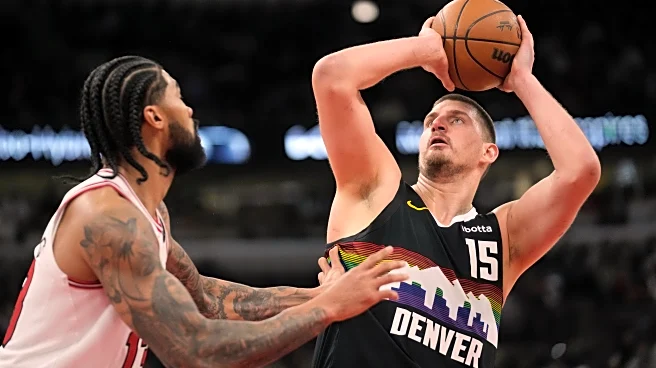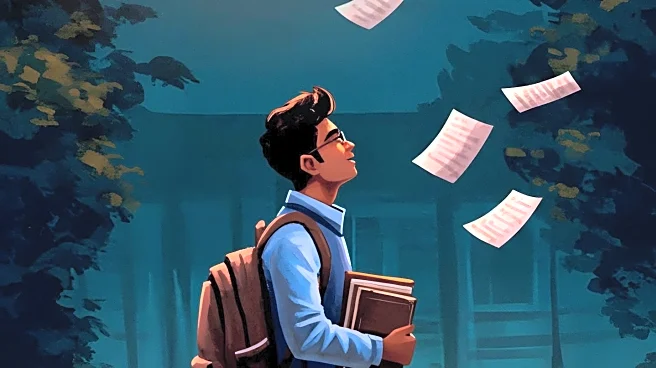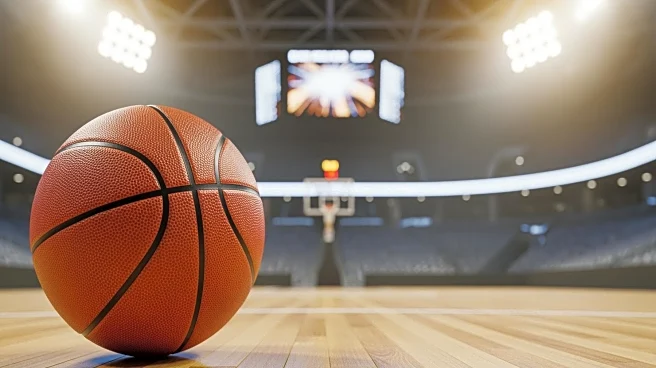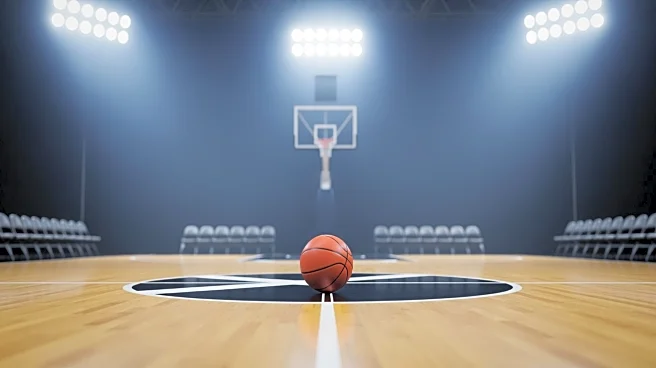What's Happening?
Braden Harms, a senior receiver for St. Charles North, has stepped up as a key player in the absence of Northwestern-bound Keaton Reinke, who has been sidelined due to illness. Harms has been instrumental in leading the team to the second round of the Class
7A playoffs, showcasing his versatility and high football IQ. Coach Rob Pomazak praised Harms as a 'field general' and a 'linchpin' for the team's success. Harms, along with teammates Chris Akpede and EJ Mondesir, contributed significantly to a recent victory over East Moline United, advancing the team to face Carmel in the next round. Despite Reinke's absence, Harms has embraced the role of the primary receiver, demonstrating the depth and talent within the team's offense.
Why It's Important?
The performance of Braden Harms highlights the depth and resilience of St. Charles North's football team, which is crucial as they advance in the playoffs. Harms' ability to step up in Reinke's absence underscores the importance of having versatile players who can adapt to changing circumstances. This adaptability is vital for the team's continued success, especially as they face strong opponents like Carmel, which features a standout quarterback, Trae Taylor. The team's ability to perform well without one of their key players could have significant implications for their playoff run, potentially boosting their confidence and morale.
What's Next?
St. Charles North is set to face Carmel in the second round of the playoffs, with Reinke expected to return to the field. This matchup will be crucial as both teams feature future Big Ten players, promising a competitive game. The potential for snow on game day adds an element of unpredictability, but Harms has confirmed that the team's game plan will remain unchanged. The outcome of this game will determine the team's progression in the playoffs and could further establish Harms as a pivotal player in high-pressure situations.
Beyond the Headlines
The situation with Braden Harms stepping up in Keaton Reinke's absence highlights the broader theme of teamwork and adaptability in sports. It reflects the importance of having a well-rounded team where multiple players can take on leadership roles when needed. This dynamic can foster a culture of resilience and collaboration, which is essential for long-term success in competitive sports environments.
